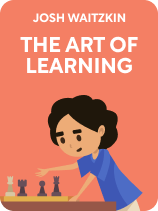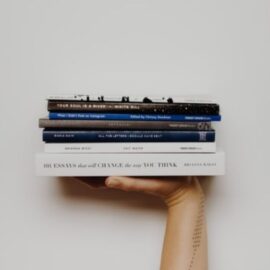

This article is an excerpt from the Shortform book guide to "The Art of Learning" by Josh Waitzkin. Shortform has the world's best summaries and analyses of books you should be reading.
Like this article? Sign up for a free trial here .
Are you looking for The Art of Learning quotes by Josh Waitzkin? What are some of the most noteworthy passages worth revisiting?
The Art of Learning by Josh Waitzkin explores his approach to all learning in a memoir-esque format. He explores the fundamentals of his learning method and mindset, building incrementally through intermediate to advanced strategies.
Here’s a selection of The Art of Learning quotes by Josh Waitzkin.
The Art of Learning: An Inner Journey to Optimal Performance
In The Art of Learning, chess prodigy and tai chi World Champion Josh Waitzkin argues that a passionate commitment to growth leads to both competitive success and fulfilling life. He explains what he learned in becoming the U.S. Junior Chess Champion as well as World Champion in Tai Chi Chuan Push Hands, arguing that excellence comes from unwavering focus, tenacious training, and creative self-actualization.
The following The Art of Learning quotes highlight some of his key ideas.
“It is rarely a mysterious technique that drives us to the top, but rather a profound mastery of what may well be a basic skill set.”
According to Waitzkin, mastery is not about wielding some special technique, but rather refining the basic skill set. Any skill is composed of simple, elemental chunks of know-how. For example, when learning to play basketball, you’d learn how to dribble, pass, shoot, and so on.
Patiently practice each element until it becomes intuitive. Waitzkin calls this form to leave form: Through practice, a conscious effort becomes unconscious, or automatic. For example, if you drill 10,000 free throws, your form will eventually become second nature.
“One idea I taught was the importance of regaining presence and clarity of mind after making a serious error.”
Waitzkin argues that mistakes are only problematic when they cause you to spiral out of control. In competition, this frequently happens when you make a mistake while winning.
A crucial mistake, he says, can cause you to lose touch with what’s actually going on. Because mistakes feel awful, we’re prone to remaining attached to what we had before the mistake. This can cause you to act desperately, trying to preserve a situation that no longer exists, leading to further mistakes—like a tumbling house of cards.
Waitzkin explains how in chess, the winning player often pressures for a greater lead but can make a mistake that negates his advantage. When this happens, he’ll often lose his cool, which in turn causes him to act incautiously, risking his lead even further. If this spiral continues, the player will lose.
To prevent this collapse, Waitzkin suggests developing a technique that returns you to mindfulness (or “presence”). He offers this rule of thumb: Refresh your mind by moving your body, and refresh your body by mindfully resting.
“In the end, mastery involves discovering the most resonant information and integrating it so deeply and fully it disappears and allows us to fly free.”
Mastery comes from refining your skills until they flow seamlessly, intuitively, and effortlessly. Once you’ve reached technical mastery, the brain processes more information with less effort. He explains that, subjectively, this feels like enhanced perception: You’ve grown so sensitive to the minutiae of the techniques that time seems to slow down. Punches seem to come in slow motion, because you’re intimately aware of every subtle movement—the shift of weight that telegraphs it, the opponent’s breath in to prepare, the shifting forward of his shoulder, and so on.
“Instead of running from our emotions or being swept away by their initial gusts, we should learn to sit with them, become at peace with their unique flavors, and ultimately discover deep pools of inspiration.”
Practicing mindfulness can help you engage with your emotions and focus through distractions. For example, many athletes need to focus amidst cheering or jeering crowds, and they can do so by accepting the noise as part of the experience.
To maintain mental and emotional stability, actively engage with your emotions by “sitting mindfully” with them. In other words, try to feel your emotions as fully and non-judgmentally as you can, avoiding the urge to label them “good” or “bad.”
Waitzkin describes how when fame overwhelmed him, he went to live in rural Europe, where he developed his techniques and his psychology. The relaxed countryside setting helped him grow into a more open, spiritually-engaged competitor and artist.

———End of Preview———
Like what you just read? Read the rest of the world's best book summary and analysis of Josh Waitzkin's "The Art of Learning" at Shortform .
Here's what you'll find in our full The Art of Learning summary :
- Life advice from chess prodigy and tai chi World Champion Josh Waitzkin
- Detailed looks at the psychological and technical sides of skill-building
- How to build any skill from the bottom-up






